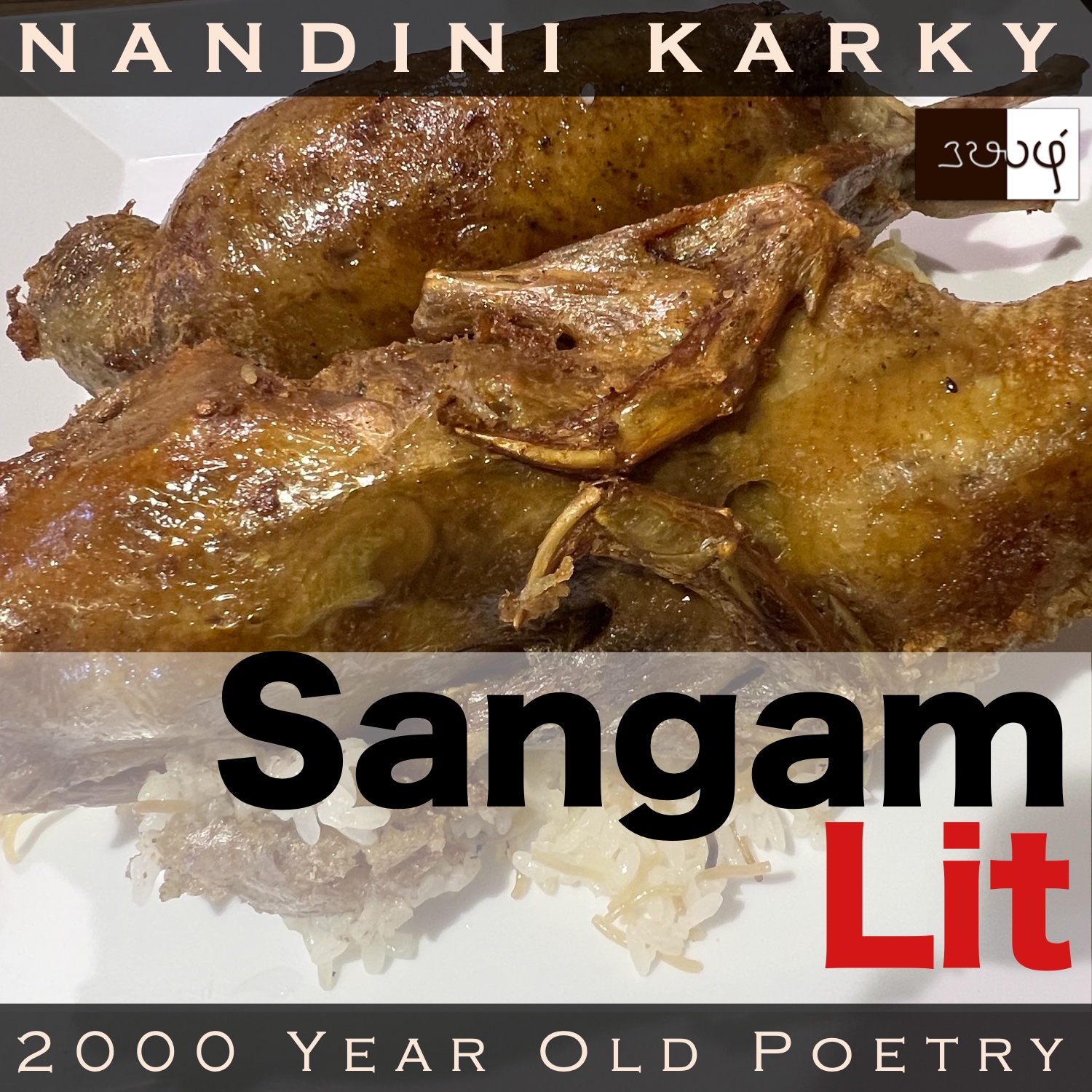Podcast: Play in new window | Download
Subscribe: Apple Podcasts | Spotify | Amazon Music | Android | iHeartRadio | TuneIn | RSS | More

In this episode, we perceive the jubilation on hearing a good news, as portrayed in Sangam Literary work, Kurunthogai 389, penned by Vettakannanaar. Set in the mountains of ‘Kurinji’, the verse speaks in the voice of the confidante to the lady, revealing positive developments with respect to the lady’s marriage.
நெய் கனி குறும்பூழ் காயம் ஆக
ஆர்பதம் பெறுக-தோழி! அத்தை-
பெருங் கல் நாடன் வரைந்தென, அவன் எதிர்
”நன்றோ மகனே?” என்றனென்;
”நன்றே போலும்” என்று உரைத்தோனே.
‘Let’s serve him a big feast’ declares a voice in this verse. The opening words ‘நெய் கனி குறும்பூழ் காயம் ஆக’ meaning ‘an oil-filled quail as a curry’ mentions the menu item of the feast. As is the case in this geographic setting, the hero is captured in a compact phrase ‘பெருங் கல் நாடன்’ meaning ‘man from the huge mountains’. Ending with the words ‘நன்றே போலும் என்று உரைத்தோனே’ meaning ‘the one who said that everything is fine’, the verse intrigues our curiosity.
A delicious dish for the mouth that spoke good words, sounds like! The context reveals that the man and lady were leading a love relationship and the man was trysting with the lady for a long while. One day, the confidante rushes to the lady and says, “An oil-fried quail in a curry should be rendered as food to him, my friend! Learning that the man from the huge mountains was making preparations for marriage, in his presence, I asked his manservant, ‘All well?’, and he responded ‘All is well’!” With these words, the confidante informs the lady that the man was in the midst of preparations to seek the lady’s hand and that wedding bells were about to resound in town!
Time to explore the nuances in this tiny verse! The confidante starts by talking about a meal to be prepared. She mentions that a quail should be fried in oil and served with curry along with rice to a person. The way she dwells on this seems to indicate it was a much-favoured food of those times. When we ask to whom and why, the confidante replies that this is for the man’s servant because the confidante seems to have asked him if everything was fine and he had responded positively, in the presence of the man, who was in the midst of preparations for his marriage with the lady. Since this servant spoke auspicious words to the confidante, she seems to have decided that he deserves a feast!
In other Sangam poems, we have seen how a feast is something offered in response to good omens or even to an owl as a bribe! ‘If someone makes you happy, serve them food’ seems to have been the motto of these ancient people. To sum up this tiny verse, it’s a delicious combination of a delicacy and a dialogue, echoing a timeless celebration of the one, who brings good tidings!




Share your thoughts...